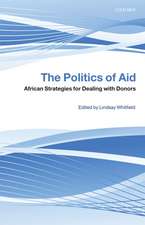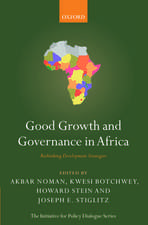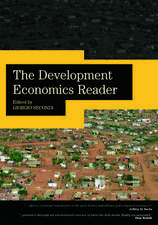Bear Traps on Russia's Road to Modernization
Autor Clifford Gaddy, Barry Ickesen Limba Engleză Hardback – 9 mai 2013
Investments made to compensate for the handicaps of cold and distance should properly be treated as costs. Instead, they are considered net additions to capital. When returns to what appear to be large quantities of physical and human capital fail to satisfy expectations, the blame naturally goes to poor institutions, corruption, backward technology, and so on. Policy proceeds along the wrong path, with costly programs that can end up doing more damage than good. The authors insist that the goal should be to seek to remove the handicaps rather than to spend to compensate for them. They discuss how Russia could develop a modernization program that would let the nation finally focus on its economic advantages, not its handicaps.
| Toate formatele și edițiile | Preț | Express |
|---|---|---|
| Paperback (1) | 411.05 lei 6-8 săpt. | |
| Taylor & Francis – 9 mai 2013 | 411.05 lei 6-8 săpt. | |
| Hardback (1) | 776.92 lei 6-8 săpt. | |
| Taylor & Francis – 9 mai 2013 | 776.92 lei 6-8 săpt. |
Preț: 776.92 lei
Preț vechi: 947.46 lei
-18% Nou
Puncte Express: 1165
Preț estimativ în valută:
148.68€ • 154.65$ • 122.75£
148.68€ • 154.65$ • 122.75£
Carte tipărită la comandă
Livrare economică 15-29 aprilie
Preluare comenzi: 021 569.72.76
Specificații
ISBN-13: 9780415662758
ISBN-10: 0415662753
Pagini: 142
Ilustrații: 30 b/w images, 13 tables and 30 line drawings
Dimensiuni: 138 x 216 x 33 mm
Greutate: 0.29 kg
Ediția:New.
Editura: Taylor & Francis
Colecția Routledge
Locul publicării:Oxford, United Kingdom
ISBN-10: 0415662753
Pagini: 142
Ilustrații: 30 b/w images, 13 tables and 30 line drawings
Dimensiuni: 138 x 216 x 33 mm
Greutate: 0.29 kg
Ediția:New.
Editura: Taylor & Francis
Colecția Routledge
Locul publicării:Oxford, United Kingdom
Public țintă
PostgraduateNotă biografică
Clifford G. Gaddy is Senior Fellow, Foreign Policy, Global Economy and Development in the Center on the United States and Europe at the Brookings Institution, USA.
Barry Ickes is Professor in the Department of Economics at Pennsylvania State University, USA.
Barry Ickes is Professor in the Department of Economics at Pennsylvania State University, USA.
Recenzii
"The book does invite suggestions for the development of a new growth paradigm that accounts for the identified economic handicaps of Russia and exploits Russian advantage" - OLGA KUZNETSOVA, Manchester Metropolitan University, Europe-Asia Studies
"They are invariably thoughtful, well informed and provocative, and they are, quite rightly, widely cited. Their latest work continues this tradition. As academic books go it is short, but there is a considerable amount of analysis packed into it." - Philip Hanson, International Affairs
"They are invariably thoughtful, well informed and provocative, and they are, quite rightly, widely cited. Their latest work continues this tradition. As academic books go it is short, but there is a considerable amount of analysis packed into it." - Philip Hanson, International Affairs
Cuprins
Introduction 1. Historical Prelude 2. Investment and Physical Capital 3. The Economics of Location 4. Market-Impeding Federalism 5. Human Capital 6. Conclusion
Descriere
If sustainable growth is a key goal for the economy of every nation, its desirability is perhaps even more acute in Russia. Even President Medvedev argues that the country’s heavy reliance on natural resources makes it primitive and uncompetitive, calling for innovation and diversification. Having analyzed the particular tenets of the economy that restrict sustainable growth, the authors argue that Russia should take advantage of its resources but move non-resource industries into regions that are closer to the market.


















